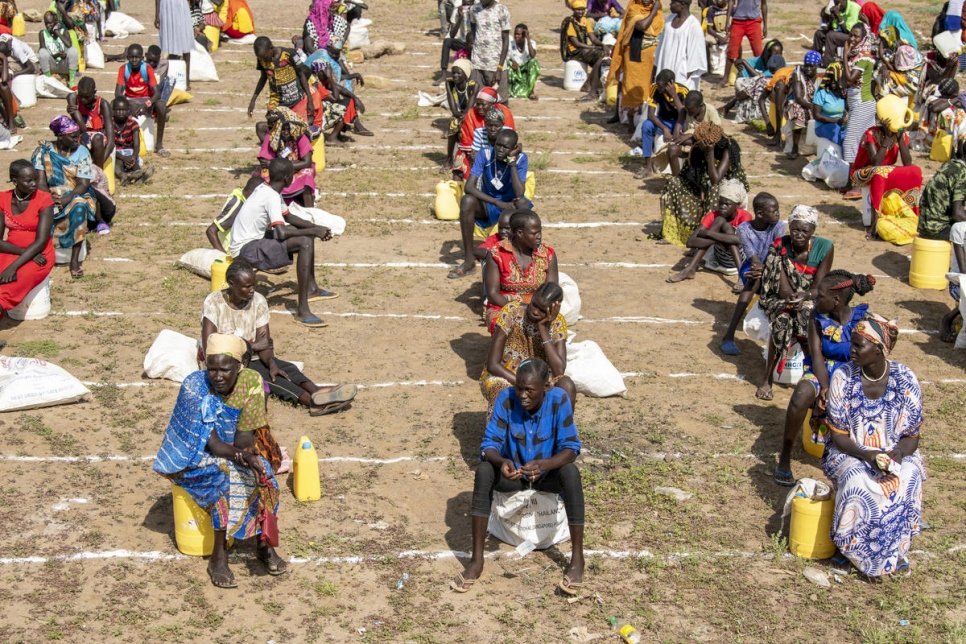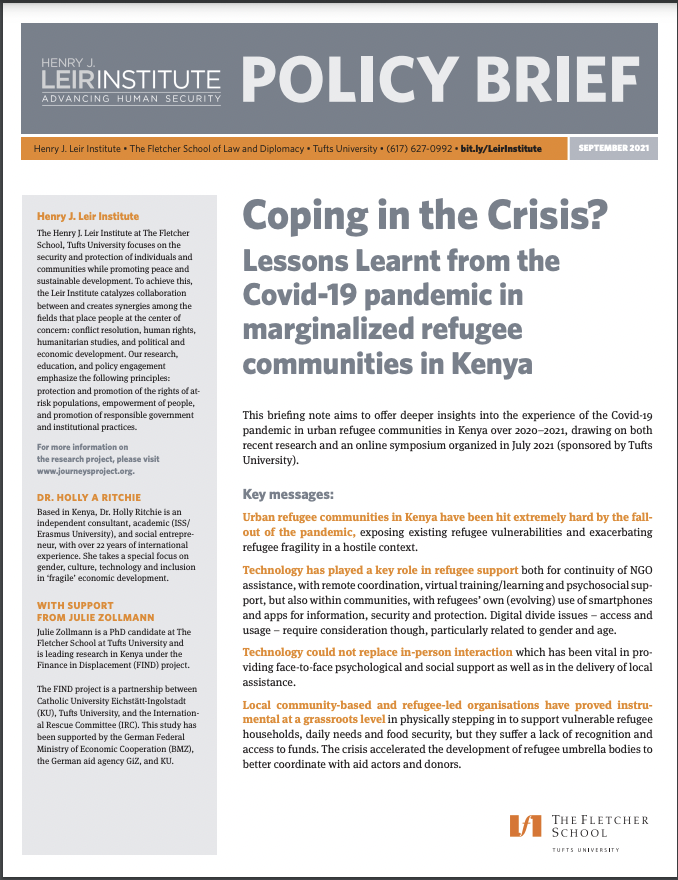
Coping in the Crisis? Lessons Learnt from the Covid-19 pandemic in marginalized refugee communities in Kenya
By Dr. Holly A. Ritchie with support from Julie Zollmann
This briefing note aims to offer deeper insights into the experience of the Covid-19 pandemic in urban refugee communities in Kenya over 2020–2021, drawing on both recent research and an online symposium organized in July 2021 (sponsored by Tufts University).
Key Messages:
Urban refugee communities in Kenya have been hit extremely hard by the fall out of the pandemic, exposing existing refugee vulnerabilities and exacerbating refugee fragility in a hostile context.
Technology has played a key role in refugee support both for continuity of NGO assistance, with remote coordination, virtual training/learning and psychosocial support, but also within communities, with refugees’ own (evolving) use of smartphones and apps for information, security and protection. Digital divide issues access and usage require consideration though, particularly related to gender and age.
Technology could not replace in-person interaction which has been vital in providing face-to-face psychological and social support as well as in the delivery of local assistance.
Local community-based and refugee-led organisations have proved instrumental at a grassroots level in physically stepping in to support vulnerable refugee households, daily needs and food security, but they suffer a lack of recognition and access to funds. The crisis accelerated the development of refugee umbrella bodies to better coordinate with aid actors and donors.
Download the policy brief below to read more.

For questions, please reach out to Professor Kimberley Wilson at Kimberley.Wilson@tufts.edu.
